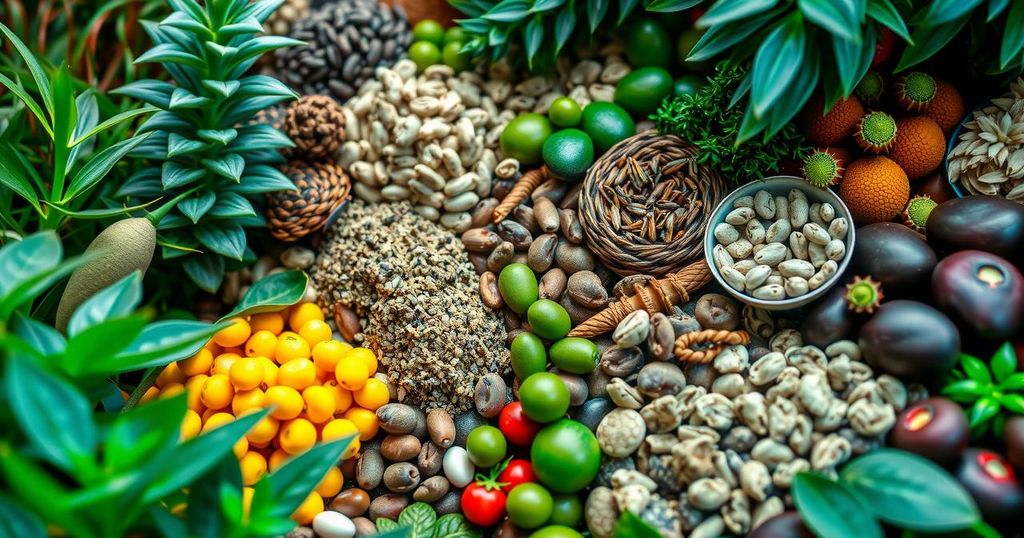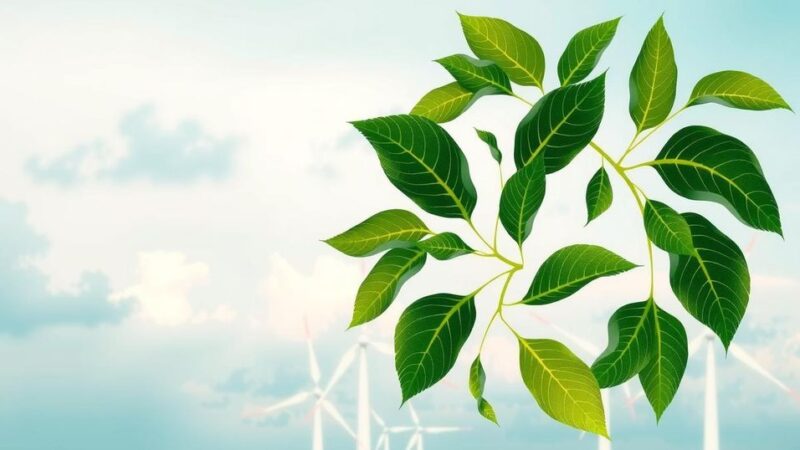The Svalbard Global Seed Vault has received 30,000 new seed samples due to growing concerns over climate change and global conflicts. This facility aims to preserve plant biodiversity, critical for food security. It operates with support from various nations and organizations to safeguard against potential global catastrophes affecting agriculture.
Concerns surrounding climate change and geopolitical tensions have led to the dispatch of 30,000 new seed samples to the Svalbard Global Seed Vault, strategically located on a remote Norwegian island in the Arctic Ocean. This facility, which is fortified within a mountain, is designed to endure catastrophic events, allowing for the preservation and potential restoration of plant life following a global disaster. Stefan Schmitz, Executive Director of the Crop Trust, who oversees the facility, noted that the rising apprehensions about international relations have driven the recent acquisition of these vital samples from 21 countries. He emphasized that “Climate change and conflict threaten infrastructure and impact food security for over 700 million people in more than 75 countries worldwide. Gene banks are ramping up efforts to back up seed collections, and we are proud to support them by providing a safe haven in Svalbard.” The Svalbard vault, inaugurated in 2008, functions as a critical reserve for gene banks across the globe, preserving the genetic diversity of numerous plant species with the aid of natural permafrost for refrigeration. Recent contributions include seeds of vegetables and herbs from the Union of Agricultural Work Committees in the Palestinian territories, along with samples from Bolivian farmers, and a significant collection of 1,145 varieties of drought-resistant maize, rice, sesame, and sorghum from Chad, all of which are crucial for countries facing the impacts of climate change. Other nations such as Bangladesh, Nigeria, Papua New Guinea, and Suriname have also made recent deposits. The Svalbard facility, financed by the Norwegian government in collaboration with the Crop Trust and the Nordic Genetic Resource Center, was established at a cost of $8.8 million and is available for free to contributors wishing to safeguard seeds that could replenish agricultural stocks post disasters. A project coordinator from the University of San Francisco Xavier in Sucre, Bolivia, remarked on the significance of their deposit, stating that “This deposit goes beyond conserving crops; it’s about protecting our culture.” Furthermore, Lise Lykke Steffensen, executive director of the Nordic Genetic Resource Center, asserted, “Humanity depends on a wide diversity of genetic resources to meet future challenges. Therefore, it is gratifying that many gene banks choose to be part of this seed deposit. The Seed Vault has an important purpose, to secure these valuable collections, not least given the state of the world today.”
The Svalbard Global Seed Vault serves as a global safety net for the preservation of seeds, safeguarding the genetic diversity of plant species crucial for food security. With increasing threats stemming from climate change and conflicts, the importance of such facilities has become ever more apparent. This repository not only aims to protect agricultural biodiversity but also to enable future generations to restore ecosystems and agricultural systems in the aftermath of potential global crises. Given the alarming statistics regarding food security and the vulnerabilities faced by numerous countries, the influx of seed samples into the Svalbard vault reflects a proactive response from the international community to fortify food sources against environmental upheavals.
The recent influx of seed samples to the Svalbard Global Seed Vault underscores a crucial collective response to global environmental challenges and geopolitical instability. By preserving a diverse array of plant genetics, this initiative aims to secure food sources for future generations and mitigate risks associated with climate change and conflicts. Contributions from various nations highlight the urgent need for collaborative efforts in safeguarding the planet’s agricultural biodiversity, ensuring resilience in the face of potential global adversities.
Original Source: global.chinadaily.com.cn






